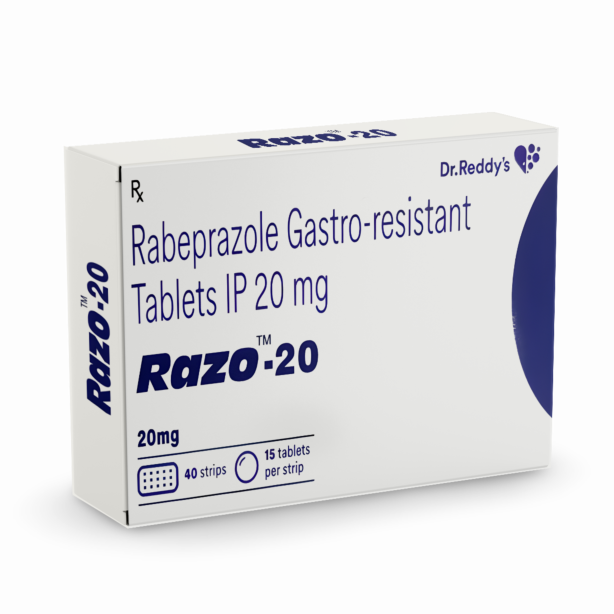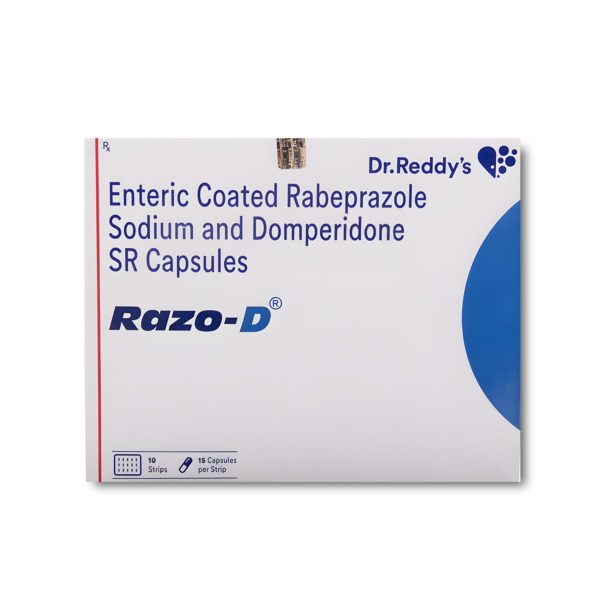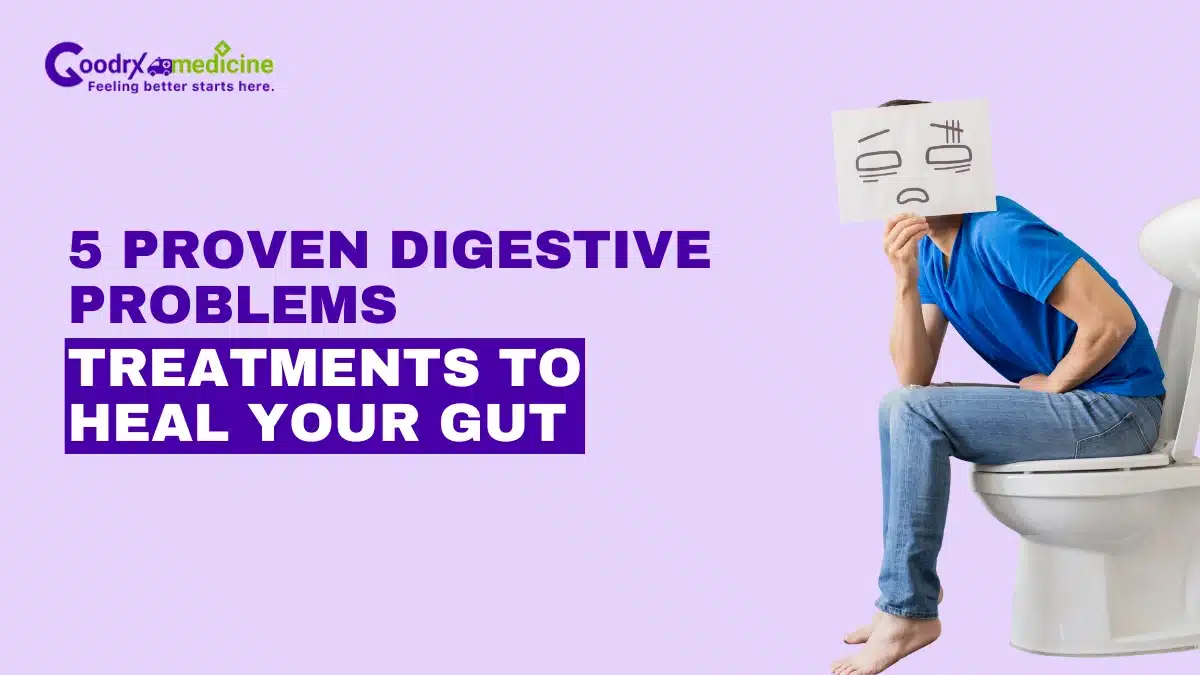Digestive problems can affect anyone at any age. They can make daily life uncomfortable and even cause stress around eating. Whether caused by lifestyle, diet, or underlying conditions, addressing these problems promptly is key to maintaining your overall well-being.
While mild issues often go away on their own, ongoing or repeated problems need proper attention. You may feel unsure about how to treat digestive troubles safely and effectively. Some treatments can be done at home, while others may need help from a doctor.
This article will guide you through trusted digestive problem treatments and how doctors diagnose these issues. It will also explain what to expect during diagnosis and how to recognize signs that may signal more serious conditions needing immediate attention.
5 Common digestive problems treatment options
Treatment for digestive problems varies widely, depending on the specific condition and its severity. If you have frequent stomach discomfort, bloating, or changes in bowel habits, several safe treatment options are available. Each option works differently, depending on your needs and the root cause.
Advances in research over the last decade have led to new, targeted therapies beyond simple symptom relief. Treatments often combine lifestyle changes, medication, and sometimes advanced therapies tailored to the root causes. Here are some common approaches:
- Lifestyle and dietary changes
Lifestyle changes can significantly improve digestive health. Improving your diet and daily habits is often the first step, with many digestive problems easing through minor, consistent adjustments.
Key strategies include:
- Eating more fiber-rich foods.
- Drinking plenty of water throughout the day.
- Getting regular physical activity, like walking.
- Reducing acid-producing foods for Acid Reflux or Gastritis.
- Avoiding trigger foods such as spicy, fatty, fried, or highly processed items.
- Eating smaller, more frequent meals.
- Eating slowly and chewing thoroughly.
- Avoiding lying down right after eating.
- Quitting or reducing smoking and alcohol consumption.
These simple changes help promote better digestion and reduce symptoms effectively.
- Over-the-counter (OTC) medications
Many OTC medicines help with common digestive problems, such as Acid Reflux, gas, and Constipation. These options offer quick relief and are easily accessible, but they should be used carefully and not for long periods without medical advice.
Common OTC medicines include:
- Antacids (e.g., Calcium Carbonate, Magnesium Hydroxide): Help neutralize stomach acid to relieve heartburn or indigestion.
- Simethicone: Reduces gas and bloating by breaking up gas bubbles in the gut.
- Loperamide (Imodium): Used to treat Diarrhea by slowing intestinal movement.
- Bismuth Subsalicylate (Pepto-Bismol): Helps with upset stomach, nausea, indigestion, and Diarrhea.
- Lactase supplements (like Lactaid): Aid in digesting lactose for those with lactose intolerance.
- Mild laxatives and stool softeners: Help relieve occasional Constipation.
Always follow package instructions and see a doctor if symptoms last or worsen.
- Prescription treatments
Prescription medicines may be needed when digestive problems are more serious or persistent. These work more powerfully or target specific digestive conditions. Common categories include:
- Proton Pump Inhibitors (PPIs) like Omeprazole (Prilosec) and Pantoprazole reduce stomach acid for Gastroesophageal Reflux Disease (GERD) and ulcers.
- Histamine-2 (H2) blockers such as Famotidine (Pepcid) also decrease acid production but act differently from PPIs.
- Prokinetics like Domperidone and Metoclopramide help speed up stomach emptying and reduce nausea.
- Antispasmodics relax gut muscles to ease cramps from conditions like Irritable Bowel Syndrome (IBS).
- Antibiotics are prescribed when bacterial infections, like H. pylori, cause ulcers or Gastritis.
Because prescription medications have side effects and interactions, a doctor must guide your treatment and monitor its progress.
- Advanced and emerging therapies
For some individuals with persistent or complex digestive diseases, newer treatments may be available:
- Fecal Microbiota Transplantation (FMT): This procedure transfers healthy bacteria from a donor’s stool to your intestine. It shows promise in treating some complicated infections and IBS.
- Targeted Receptor Modulators: Medications targeting specific receptors involved in gut secretion, immune response, or pain are under study, and some have Food and Drug Administration (FDA) approval for specific digestive disorders.
- Natural and supportive remedies
Some natural remedies may offer comfort along with medical treatments. These are gentle ways to support digestion, but they should not replace professional care.
Some helpful natural approaches you may benefit from:
- Warm herbal teas, such as ginger, peppermint, or chamomile, soothe digestive discomfort and reduce symptoms such as nausea, indigestion, and bloating.
- Foods high in fiber, such as oats, apples, and lentils, aid in maintaining regular bowel movements and contribute to a healthy digestive system.
- Yogurt with live cultures (Probiotics) to help restore and maintain gut balance, alleviating issues like bloating, gas, and irregularity.
- Avoid processed foods that are hard to digest.
For a sensitive stomach, start slowly when trying new foods or remedies. Some natural options may not be right for everyone. Always ask a doctor before using supplements or herbs, especially if you take other medications.
Save up to 90% on your medicine bills

Razo 10 mg

Razo 20 mg

Razo D Capsule
Signs of serious digestive issues
While many digestive problems are manageable, there are warning signs that indicate a serious underlying condition needing urgent professional evaluation. You should see a doctor immediately if you experience:
- Severe or persistent abdominal pain
- Blood in vomit or stool (may look like black, tarry stools or bright red blood)
- Unexplained weight loss or weakness
- Difficulty swallowing or persistent vomiting
- Jaundice (yellowing of skin or eyes)
- Prolonged nausea or vomiting
- Changes in bowel habits lasting more than a few weeks
Recognizing these signs early can prevent complications such as ulcers, bleeding, or Cancer.
Getting a proper diagnosis to guide treatment
Proper diagnosis is essential to tailor the most effective treatment for you. Doctors rely on your medical history, physical exams, and diagnostic tests.
When you visit a doctor, they may begin with a few simple questions. You may be asked how long you have had the problem, when it worsens, and what foods or activities affect it.
They may do a basic physical check-up. In some cases, your doctor might recommend tests like:
- Endoscopy: A flexible camera checks your digestive tract for inflammation, ulcers, or abnormal growths. Tissue samples may be taken for analysis.
- Imaging tests: Ultrasound, CT scans, and MRI help visualize digestive organs to detect blockages, tumors, or infections.
- Blood and stool tests: These can reveal infections, inflammation, organ function abnormalities, or hidden bleeding.
Each test helps identify different causes. These diagnostic tools allow doctors to identify the specific disorder and its severity, helping you get the proper treatment. Your doctor will suggest the best treatment depending on your symptoms and health history.
Conclusion
Finding the correct digestive problems treatment depends on your specific symptoms and overall health. For many, lifestyle and dietary changes can offer lasting relief, like eating more fiber, drinking enough water, and avoiding trigger foods.
Over-the-Counter (OTC) medications such as antacids, Simethicone, or laxatives help manage common symptoms like gas, indigestion, or Constipation. In more persistent cases, prescription medications such as Proton Pump Inhibitors or Prokinetics may be needed to treat underlying conditions like GERD or IBS.
Advanced therapies like Fecal Microbiota Transplantation and Targeted Receptor Modulators offer hope for those with more complex issues. Natural remedies, including herbal teas, probiotics, and fiber-rich foods, can support digestion when used responsibly.
However, watching for warning signs like severe pain, blood in the stool, or weight loss is essential. A proper diagnosis, through endoscopy, imaging, or lab tests, ensures that treatment addresses the root cause. Always work closely with your doctor for a safe, effective plan.

Frequently Asked Questions
What are the signs of digestive problems?
Signs of digestive problems include bloating, gas, heartburn, Constipation, Diarrhea, nausea, vomiting, and stomach pain. You may notice changes in bowel habits, such as frequent Constipation or Diarrhea. Blood in stool or vomit and unexplained weight loss are signs to seek urgent medical care.
Can stress cause digestive issues?
Yes, stress can cause digestive problems. When you feel stressed, your body slows digestion or speeds it up too much. This can cause stomach pain, bloating, Diarrhea, Constipation, or nausea. Managing stress helps keep your digestive system working well and reduces tummy troubles.
Can stress cause cramps in the uterus?
Yes, stress can cause cramps in the uterus. When stressed, your body produces more Progesterone, a hormone that makes your uterus muscles contract, leading to stronger cramps. Stress can also change other hormones, which may make your period more painful or irregular.
Which fruit is good for digestion at night?
Kiwi, papaya, and bananas are good for digestion at night. Kiwi is high in fiber and enzymes that gently help move food through your system. Papaya contains enzymes that reduce bloating. Bananas have fiber and potassium, supporting smooth digestion and calm muscles. These can ease digestion and promote sleep.
What to drink first thing in the morning for digestion?
Drinking warm lemon water first thing in the morning can help your digestion. It wakes up your digestive system and helps break down food. Ginger tea is another good choice as it soothes your stomach and reduces gas or bloating. Drinking water also keeps you hydrated for smooth digestion.
What is the best probiotic to drink?
The best probiotic drink for you depends on your taste and needs. Popular choices include Kefir, a fermented milk drink full of good bacteria, Kombucha, a fizzy fermented tea, and Yakult, which contains Lactobacillus casei. These drinks effectively support digestion and boost gut health.
When referencing outside resources, GoodrxMedicine always provides full citations. To learn more about the measures we use to maintain the quality of our content, please review our Content Information Policy.










